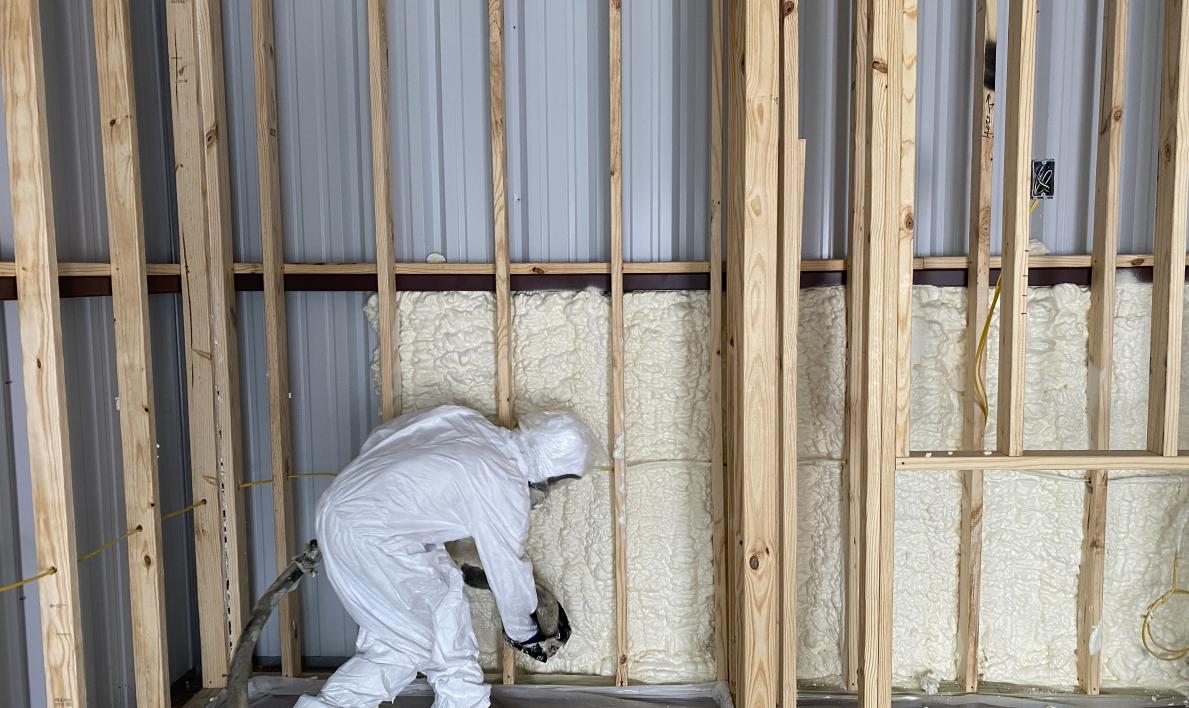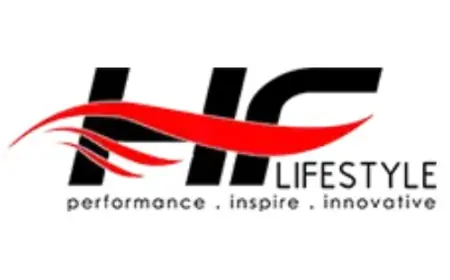How Spray Foam Insulation Services Improve Home Efficiency in Denver, CO
sealed barrier that addresses both heat loss and air infiltration. Unlike traditional insulation types, it expands into cavities and cracks, offering both insulation and air sealing in one application.

Denver’s climate poses specific challenges for both residential and commercial property owners—cold winters, hot summers, and rising energy costs. Air leakage, poor insulation, and inconsistent indoor temperatures aren’t just inconvenient; they reduce building performance. Spray foam insulation services offer a direct solution to these issues, with long-term benefits for comfort, energy efficiency, and property durability.
This article outlines how spray foam insulation services improve home efficiency in Denver, CO. It explains what sets this method apart, when to use it, and how local professionals support property owners with modern application methods.
Key Benefits of Spray Foam for Denver Homes and Buildings
Spray foam insulation creates a sealed barrier that addresses both heat loss and air infiltration. Unlike traditional insulation types, it expands into cavities and cracks, offering both insulation and air sealing in one application.
Reduces Energy Waste Year-Round
Homeowners in Denver often experience high heating costs in winter and rising cooling demands during summer. Spray foam reduces the load on HVAC systems by minimizing air leaks and maintaining consistent indoor temperatures.
Improves Indoor Air Quality
Air sealing prevents pollen, dust, and other allergens from entering. For households with respiratory sensitivities, this can lead to noticeable improvements in daily comfort.
Prevents Moisture and Mold Risks
Closed-cell spray foam acts as a vapor barrier, reducing the chance of moisture buildup in walls, basements, and crawl spaces—areas commonly prone to mold in Colorado’s variable climate.
Enhances Structural Integrity
Closed-cell foam stiffens and strengthens walls and roof structures. This reinforcement helps properties hold up better against temperature swings, snow loads, and wind.
Types of Spray Foam Insulation and Where They Work Best
Different foam types serve different insulation needs. Each has its place depending on structure type, project goals, and building code compliance.
Closed-Cell Spray Foam
High-density and rigid, this material offers a high R-value per inch and adds structural strength. It works best for:
- Basements
- Crawl spaces
- Exterior walls
- Metal buildings and pole barns
Open-Cell Spray Foam
Lower density and more flexible, open-cell foam allows some vapor permeability. It's often used in:
- Interior walls for sound control
- Attic rafters
- Retrofit projects with irregular cavities
Residential Applications
Homeowners benefit most from foam applied in:
- Attics and roof decks
- Wall cavities
- Rim joists
- Crawl spaces
Commercial and Agricultural Buildings
Metal-framed buildings like pole barns require insulation that controls both heat and condensation. Spray foam is well-suited for:
- Agricultural storage units
- Workshops and garages
- Warehouses
Spray Foam Application Process and What to Expect
The installation process is efficient, but preparation matters. Experienced spray foam teams begin with a site inspection and walk-through, helping property owners understand the right foam type and thickness for each zone.
Step-by-Step Application Overview
- Site Assessment – Inspect structure, measure cavity sizes, and identify moisture concerns.
- Surface Preparation – Clean and protect surrounding areas; confirm temperature and humidity suitability.
- Foam Application – Foam is sprayed into cavities and expands immediately to fill gaps.
- Curing and Trimming – Foam sets within minutes; any excess is trimmed to finish.
- Post-Inspection – Confirm coverage, thickness, and air seal performance.
Environmental and Energy Impact in Denver’s Climate
Denver’s mixed climate zone calls for insulation that handles extreme cold and summer heat efficiently. Energy-efficient foam insulation minimizes heat loss and gain, helping properties stay within energy code standards and comfort expectations.
Eco-Friendly Foam Choices
Some professional foam insulation services now offer low-GWP (Global Warming Potential) spray options. These formulas meet performance needs while reducing environmental footprint.
Reduces HVAC Run Time
Spray foam cuts the need for frequent heating and cooling system cycles, lowering fuel or electricity consumption and extending equipment lifespan.
Why Professional Installation Outperforms DIY Kits
Spray foam may look simple to apply, but the risks of uneven coverage, poor expansion, or overspray are high when handled without the right equipment or training.
Advantages of Hiring Experienced Insulation Teams
- Consistent Application Thickness – Essential for air barrier and R-value performance
- Safe Chemical Handling – Requires respirators, suits, and controlled environments
- Code Compliance – Professionals follow Denver-specific energy and fire safety codes
Common Misconceptions About Spray Foam Insulation

Some myths prevent property owners from considering spray foam. The reality is often more practical than the marketing noise.
“Spray Foam is Only for New Construction”
While it’s ideal for new builds, spray foam can be applied during renovations, attic retrofits, and crawl space upgrades without tearing down walls.
“It’s Too Expensive Compared to Fiberglass”
Upfront cost is higher, but it pays back in reduced energy bills, improved comfort, and longevity. Unlike batt insulation, it doesn't sag or shift over time.
Real Results: Long-Term Performance Metrics
Spray foam lasts 20+ years with minimal degradation. This makes it a long-term investment that continues to perform without the need for reapplication or topping up.
Foam vs. Traditional Insulation: Performance Table
|
Feature |
Spray Foam |
Fiberglass Batts |
|---|---|---|
|
R-Value per inch |
High (6.0–7.0) |
Moderate (2.9–3.8) |
|
Air Sealing |
Yes |
No |
|
Water Resistance |
Closed-cell only |
No |
|
Mold Resistance |
High |
Low |
|
Lifespan |
20–30 years |
10–15 years |
|
Structural Support |
Yes (closed-cell) |
No |
Services Supporting Home Efficiency in Denver
RIB Spray Foam provides targeted spray foam insulation services designed for local conditions and building types. Each service supports reduced energy use and long-term property performance.
Closed-Cell Spray Foam
Ideal for high-efficiency builds, closed-cell foam is dense, moisture-resistant, and suitable for exterior walls, basements, and metal buildings. It helps prevent drafts and adds strength to structural framing.
Residential Spray Foam
Applied in walls, attics, and crawl spaces, this solution enhances year-round comfort and helps lower heating and cooling costs. It’s used in both new and retrofit projects.
Pole Barn Spray Foam
Designed for agricultural and utility buildings, this application reduces condensation, improves temperature control, and protects stored items or equipment.
Crawl Space Spray Foam
Sealing crawl spaces from Denver’s outdoor air and ground moisture is essential. Spray foam keeps these spaces dry, insulated, and free of pests or mildew buildup.
New Construction Spray Foam
Helps builders meet Denver energy codes efficiently. Proper insulation during framing reduces long-term maintenance and operating costs for property owners.
Home Insulation
Whether upgrading an old home or improving a new one, spray foam adds comfort, value, and energy control. Applications are tailored to each building’s envelope.
Conclusion
Spray foam insulation services offer a high-performance answer to Denver’s demanding climate. From better air sealing to long-term energy savings, this method outperforms traditional materials in comfort, durability, and efficiency. Choosing experienced spray foam teams makes all the difference in how the material performs and lasts.
Ready to Achieve Energy-Efficient Indoor Performance?
Spray foam improves energy use, air quality, and structural performance. RIB Spray Foam supports energy-focused upgrades with local insulation experts and advanced application methods. Call (970) 645-8077 to book your consultation.
FAQs
How long does spray foam insulation last in Denver homes? Properly applied spray foam insulation can last 20 to 30 years. It doesn’t sag or settle, and it retains its thermal properties with minimal maintenance.
Is spray foam insulation safe for homes with children or pets? Once cured (usually within 24 hours), spray foam is inert and safe. During installation, certified insulation experts follow strict ventilation and safety protocols.
Can spray foam be used in older homes without tearing out walls? Yes, foam insulation experts can apply spray foam in attics, crawl spaces, and rim joists of older homes. Retrofits often don’t require full demolition.
Will spray foam insulation help reduce noise from outside? Open-cell spray foam provides excellent sound absorption, especially in interior walls and attic spaces. It helps reduce outdoor and in-house noise transmission.
How does spray foam handle Denver’s temperature swings? Energy-efficient spray foam maintains stable indoor conditions during both hot summers and freezing winters. It insulates and seals in one step, improving HVAC efficiency year-round.
Reviewer: Grace Walker has been in the spray foam business for 9 years and provided suggestions that helped refine this article’s focus on brand development and simple, consistent marketing efforts.
What's Your Reaction?
 Like
0
Like
0
 Dislike
0
Dislike
0
 Love
0
Love
0
 Funny
0
Funny
0
 Angry
0
Angry
0
 Sad
0
Sad
0
 Wow
0
Wow
0















































